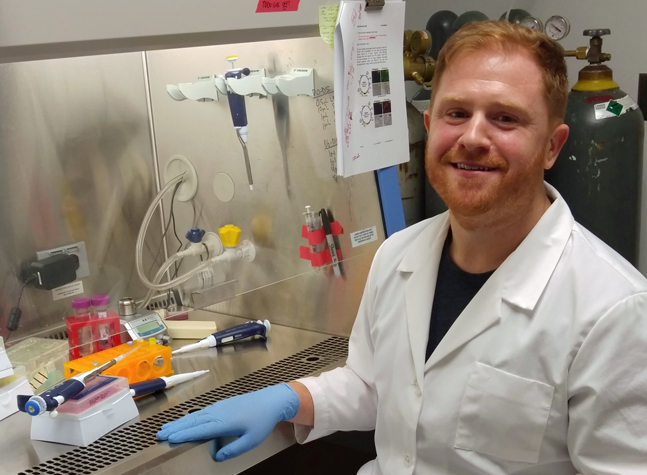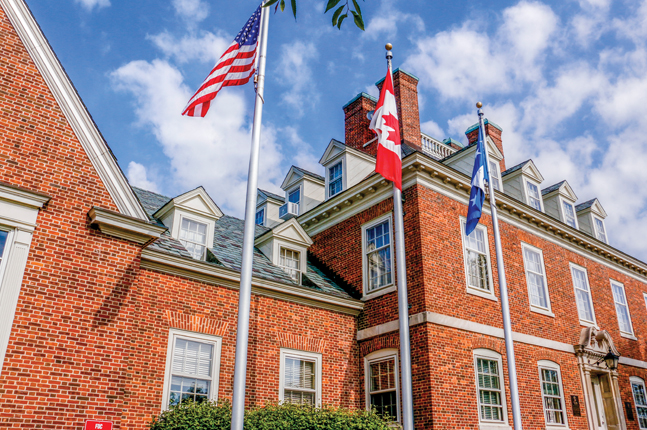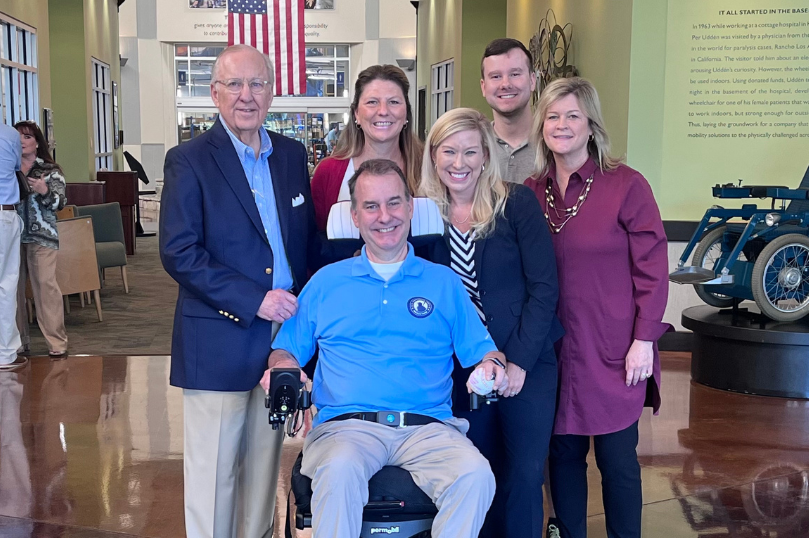The lead researcher at The LiveLikeLou Center for ALS Research at The University of Pittsburgh, Chris Donnelly, PhD, and his team, have recently announced a major breakthrough in the study of ALS, and it was just published in the very influential Neuron research journal. Phi Delta Theta Fraternity’s commitment to the cause of ALS and the LiveLikeLou focus on research remains steadfast.
“This is exactly why we choose to make grants supporting ALS research,” said Gaylon Morris, LiveLikeLou Foundation Board Vice Chairman and Chair of the Foundation’s Scientific Research Committee. “Through investments like these, we are confident we can have an impact on the course of this disease.”
The breakthrough involves the study of “TDP-43,” a single misbehaving DNA-binding protein found in 97% of ALS cases, 45% of frontotemporal dementia (FTD) cases, 80% of chronic traumatic encephalopathy (CTE) cases, and 60% of Alzheimer’s cases. The team studied it using a new optogenetic (light) procedure, giving them important insights into the underlying mechanisms of the protein. “Basically, the team reproduced the disease (ALS) in a dish,” according to Dr. Donnelly.
The research team then found a way to ‘trap’ TDP-43 so it does not form toxic clumps that can cause neurodegeneration and cell death. This discovery could provide an avenue for therapeutic intervention. Although any therapies using this process would still have to go through animal experiments and human trials, “the wide-reaching research potential of this process on many diseases is huge,” said Suzanne Alexander, Director of The LiveLikeLou Foundation.
“We remain committed to investing in research and researchers that move the needle on the science behind ALS,” Morris said. “The LiveLikeLou Foundation recently convened a Scientific Research Committee to help advise the Foundation on high impact areas for future ALS research grants,” he explained.
“Our priority is to continue supporting emerging ALS researchers, and institutions committed to novel and innovative pre-clinical ALS research,” Morris added.
“Our Fraternity is busy raising funds for ALS. Alumni and undergraduates across North America are learning and seeing firsthand that we can have a direct impact on this deadly disease,” said Dr. Chris W. Brussalis, President of the Phi Delta Theta General Council. “This news motivates us all to keep working hard for ALS.”
Read the article in Neuron research journal article here. Read the press release from The University of Pittsburgh here.





